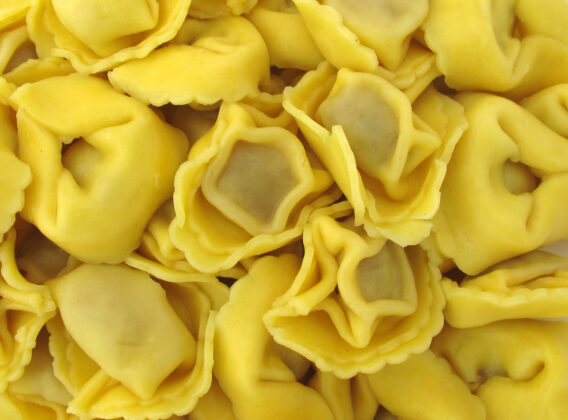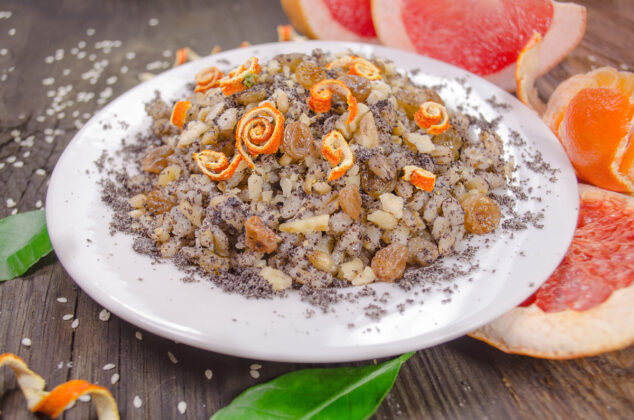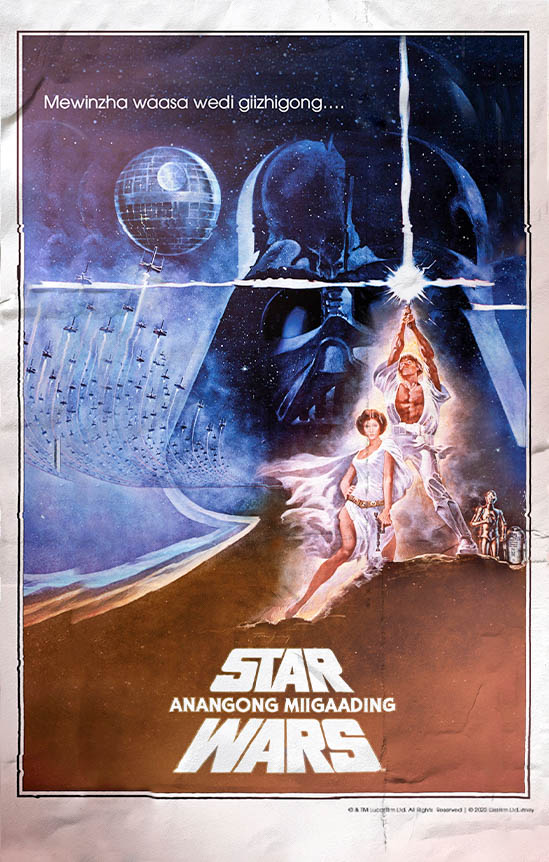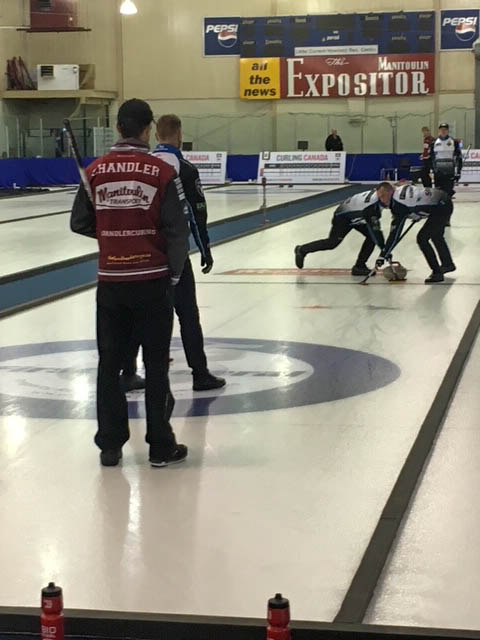MANITOULIN—Art Donskov and his family have settled on Manitoulin Island and are discovering what it means to be Canadian at this time of year. The Expositor dropped in to chat about Christmas traditions in Ukraine with Mr. Donskov at The Bear restaurant in Little Current where the popular executive chef has introduced Manitoulin Island to the wonders of sushi and some traditional Ukrainian foods.
“We are not orthodox, we are contemporary,” cautions Mr. Donskov as the conversation begins.
The first big difference between Christmas in Canada and the West is that in Ukraine the birth of Christ is celebrated on January 7—in the Orthodox Church tradition.
But there are strong similarities to Canadian custom as well. “Usually, there is a big table with family and friends,” he said. “There are 12 traditional dishes, we don’t have them all—we are not that traditional,” he smiles. But when it comes to the table and friends getting together and having a good time, that runs strong.
“We enjoy each other’s company and it is a time to put aside differences,” said Mr. Donskov, adding that, wisely in any community across the globe where getting together in harmony is concerned that, “We don’t talk politics.”
The 12 traditional dishes are: kutia, a porridge made from unground wheat, rice, barley or oats with the addition of sweet ingredients like honey or jam, dried fruits and such which symbolize eternal life and heavenly bliss; borsch, a hearty soup, usually cooked with meat, but usually as a “Lent recipe” without meat for Christmas Eve, Ukrainians usually use dried mushrooms, beets, carrots, beet kvass, dairy butter and flour. The lent soup is often served with small dumplings (vushka) called “ears.” These dumplings are made from dough and are stuffed with mushrooms; mushroom gravy, a light sauce that includes dried mushrooms, bulb onions, flour, oil and spices, prepared very thick, similar to modern cream soups; Varenyky, served Christmas Eve these savory perogies are stuffed with stewed cabbage and onions; the familiar holubtsi (aka cabbage rolls) is a traditional dish usually made of cabbage leaves, rice, and meat. Yet since the festive Christmas table traditionally includes lean dishes, Ukrainians use a mixture of potatoes, mushrooms, onions and carrots instead of meat. Cabbage leaves are filled with vegetable stuffing, fried in a pan with a little vegetable oil, and then stewed in tomato paste; pickeled herring, using bulb onion and a marinade made of water and spices that should be marinated for at least 24 hours; speaking of marinated, marinated mushrooms are sometimes a separate dish prepared much like the herring; Ukrainian Christmas bread or “kolach” is a slightly sweet yeast bread that is braided and shaped into an oblong loaf or three round braids stacked one on top of the other. A candle is placed in the middle and is an essential part of the Christmas Eve supper; stewed cabbage is a simple dish that each home has its own recipe for added herbs and spices; haricots can be served as a salad or a stew—to cook the salad, you boil white haricots, combine them with grated onions, sliced bell peppers, tomato paste and vinegar, while to make the stew you cook the haricots together with dried mushrooms, bulb onions and garlic; pampushky are considered an essential accompaniment to borscht, similar in taste to donuts, they are small buns made of yeast dough based on wheat flour—for the festive Christmas table, pampushky are prepared with a sweet filling and fried in oil then sprinkled with powdered sugar; finally, there is compote, a light drink made using dried fruits according to taste, such as dried apples, pears, prunes, raisins or a mixture of different ingredients, the fruits are boiled in dried fruits in water and then honey is added.
“Christmas is a holy family day,” shared Mr. Donskov. “Waking up Christmas morning, children open gifts (adults too). It is a time for close family members, my sister usually comes over.”
Christmas is a time to bury all old grievances, a time to celebrate goodwill among men.
Christmas in the Orthodox tradition holds a secondary celebratory importance to Easter and the Resurrection of Christ, and the 19th of January, a week after Christmas with the baptism of Christ.
Huge changes came to Ukraine some 100 years ago with the arrival of the Soviets, noted Mr. Doskova. The officially atheistic ideology tried to forcefully separate the Ukrainians from religious practices. To that end, knowing that they could not hope to do so without some type of celebratory holiday, they brought in two New Year celebrations: January 1 and the “old New Year” of January 14. “There was no official celebration of Christmas,” noted Mr. Donskova. “But people did, they just kept it on the down low.”
Another key difference that is somewhat the same is Santa. Ukrainians and Russians have St. Nicolas, the patron saint of children. St. Nicolas Day is December 19 and is a celebration of “good. On the 19th a child gets gifts.
There is also Grandfather Frost, Ded Moroz, who Soviets had originally also banned, but later adopted as a more non-religious holiday icon. He and his granddaughter Snow Maiden, Snegurochka, brought gifts to children during New Year’s parties, much like Santa and his reindeer on Christmas.
Today, although its origins are steeped in Christian ideology, Ukraine has largely replaced the religious aspects with a more western commercial approach, noted Mr. Donskov. He was reluctant to talk about the current state of the Orthodox Church in Ukraine.
The mainstream Christian religion in Ukraine has been the Orthodox Church has been riven apart by the Russian invasion of Ukraine, with the Russian patriarch supporting Russian President Vladimir Putin and the Ukrainian branch severing ties—then splitting internally as well.
He and his family will be celebrating Christmas in the mainstream Canadian version, he noted. “We will assimilate,” smiles Mr. Donskov. He had his family are applying for their permanent residency, with a firm eye on becoming Canadian citizens.









